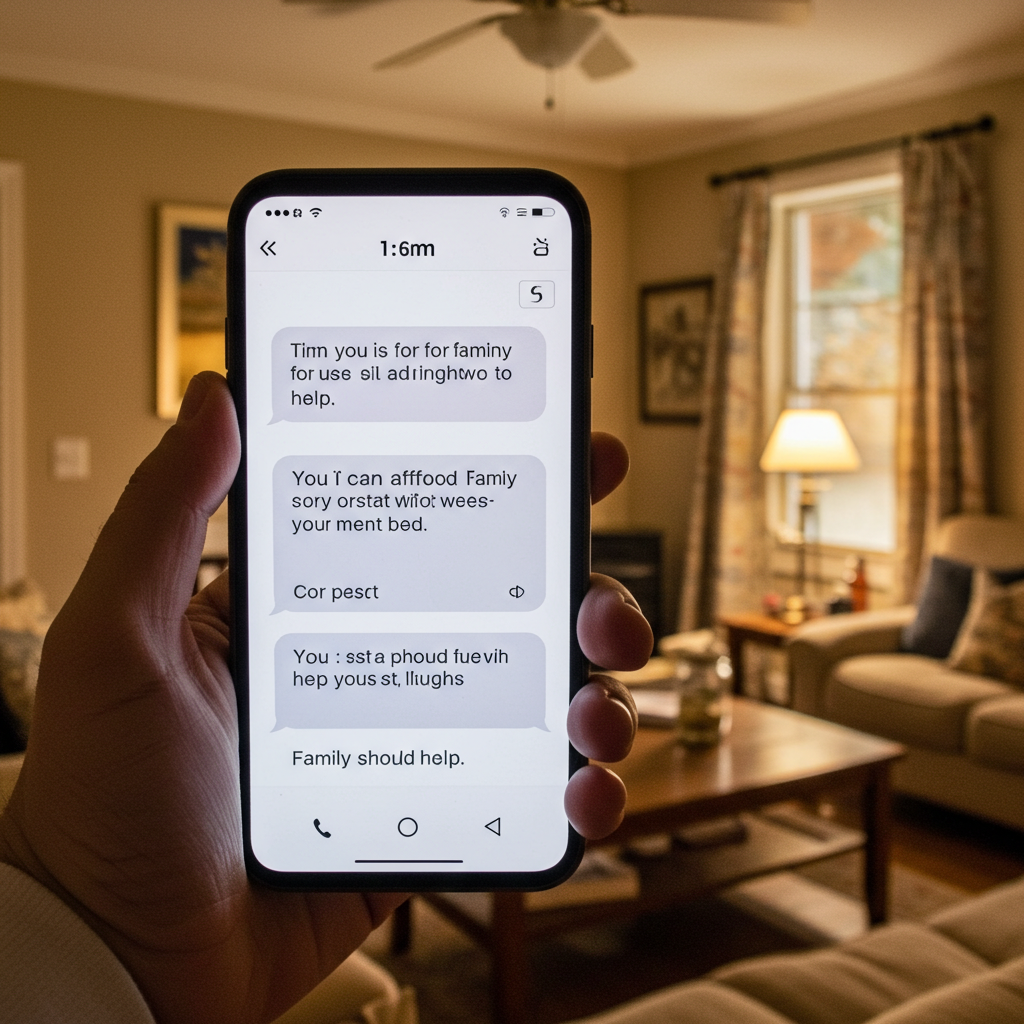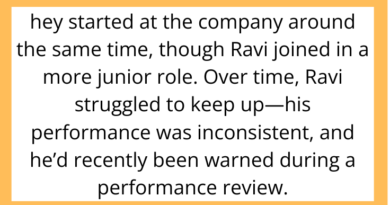AITAH for Refusing to Help My Cousin Pay for Her Wedding Even Though I’m Financially Comfortable?
Weddings can bring out the best—and sometimes the worst—in family dynamics. A recent scenario posted on r/AITAH touched on a sensitive issue: financial expectations among relatives. The original poster (OP) declined to contribute to their cousin’s wedding fund, despite being perceived as “well off.” The cousin and extended family were outraged, sparking a debate: Does having money automatically mean you’re obligated to share it?
In this post, we explore the ethics of financial boundaries, entitlement, and why generosity should never be demanded.
The Situation: When “No” Isn’t an Acceptable Answer

OP shared that they’ve worked hard to build financial stability. While not “rich,” they are in a solid place—debt-free, with savings, and a steady income. When their cousin got engaged, the family started planning a large, lavish wedding. Soon after, OP received a message asking for a “generous contribution,” since OP was “doing well” and “family should help each other.”
OP politely declined, offering congratulations and a thoughtful gift instead. The cousin exploded, accusing OP of being greedy and selfish. Word spread quickly. Suddenly, OP was painted as the villain, with relatives guilt-tripping them over “abandoning family during a happy moment.”
So, AITAH for refusing to pay for someone else’s dream day—even if I could afford it?
When Financial Boundaries Are Misunderstood

This story taps into a growing issue in modern families: financial guilt. Here’s why OP’s situation hit a nerve:
-
“You have money, so you should help” mindset: Many assume those with savings are obligated to assist others.
-
Entitlement vs. support: Offering help is generous. Expecting help is entitled.
-
Money doesn’t mean comfort: Financial stability doesn’t mean emotional or logistical readiness to fund someone else’s life events.
Saying no to a financial request—even politely—can trigger deeply ingrained cultural or familial expectations. But that doesn’t make it wrong.
Why You’re Not Obligated to Fund Anyone’s Wedding

Let’s be clear: no one is entitled to your money. Not even close family. Here’s why:
1. Your Finances, Your Priorities
Maybe you’re saving for a house. Paying off student loans. Building an emergency fund. Or maybe you just prefer to spend your money on experiences or causes you care about.
Being in a good financial position doesn’t cancel out your right to spend—or not spend—as you see fit.
2. Weddings Are Wants, Not Needs
A wedding, no matter how beautiful, is not a necessity. It’s a luxury event. If someone plans a celebration beyond their means, it’s not others’ job to cover the gap.
Helping should be a choice, not a demand.
3. Guilt Is a Manipulation Tactic
Phrases like:
-
“You’re family.”
-
“It’s just a small amount for you.”
-
“You can afford it.”
…are designed to push past your boundaries. Healthy relationships don’t rely on guilt—they rely on communication and respect.
How to Handle Financial Pressure from Family

If you’re in a similar position, here are some respectful but firm ways to stand your ground:
-
Be direct: “I’m not comfortable contributing financially, but I’m happy to celebrate with you in other ways.”
-
Stick to your decision: Once you say no, don’t backtrack due to pressure.
-
Offer alternatives: A meaningful gift, your time, or help with planning (if you want) can be generous without overstepping your limits.
-
Accept the fallout: Not everyone will understand your boundaries. That’s okay. Your peace is more important than their approval.
Reddit’s Verdict: Mostly NTA

In the comments, most people agreed that OP was not the a-hole. Users pointed out that financial success shouldn’t come with a price tag for emotional blackmail. Some even shared stories of being in similar situations—where money turned family into fundraisers instead of supporters.
Still, a few believed that OP could’ve offered a “symbolic amount” just to keep the peace. But does appeasement justify compromising your values?
Final Thoughts: Saying No Is Still Kind

Refusing to fund a cousin’s wedding—even if you have the means—isn’t rude. It’s responsible. You’re not saying, “I don’t care about you.” You’re saying, “I care about my boundaries.”
Generosity is beautiful—but only when it’s freely given, not demanded.



